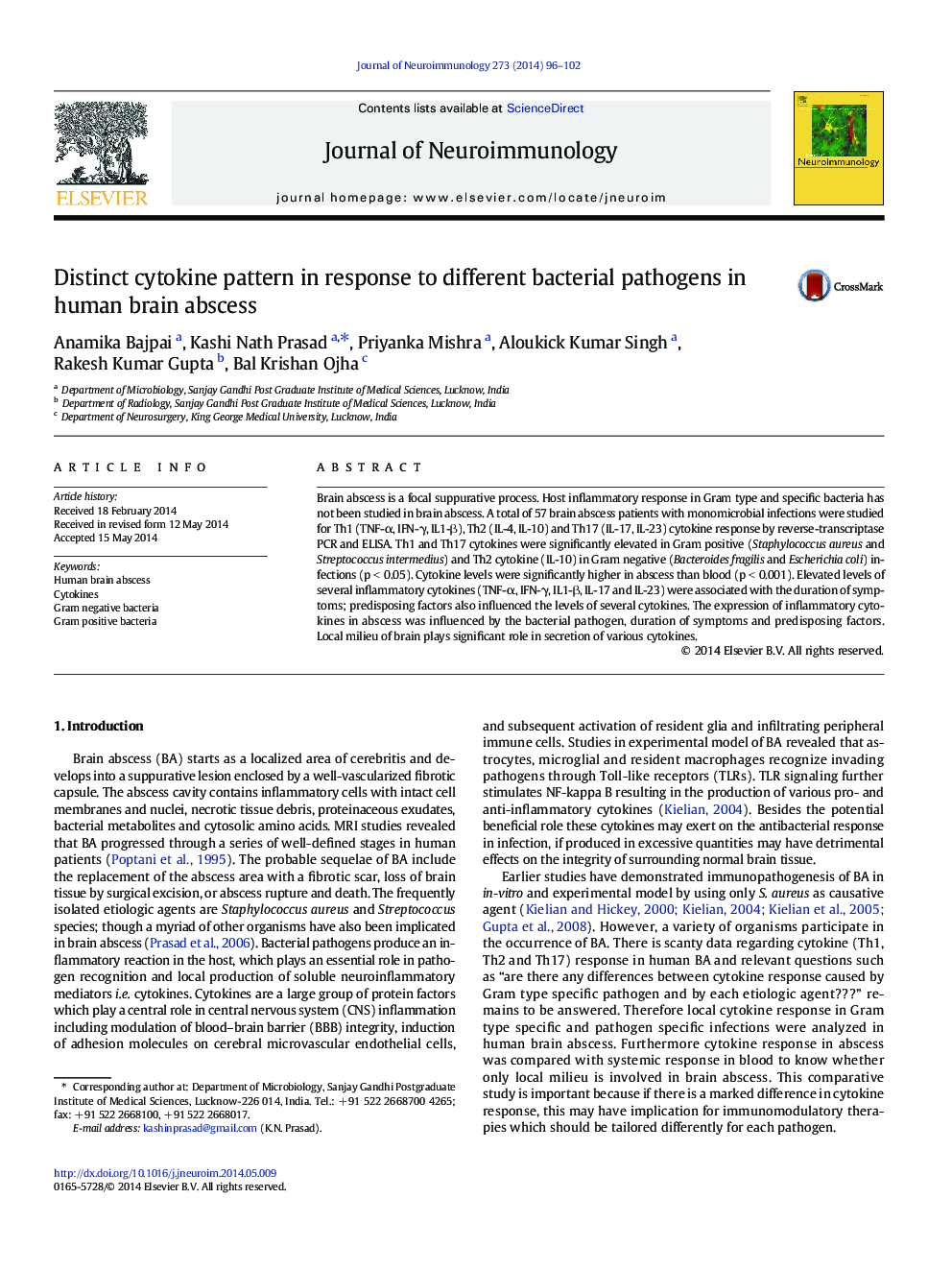| Article ID | Journal | Published Year | Pages | File Type |
|---|---|---|---|---|
| 6020296 | Journal of Neuroimmunology | 2014 | 7 Pages |
â¢Th1 and Th17 cytokine response were associated with Gram positive bacteria.â¢Th2 cytokine response was associated with Gram negative bacteria.â¢Levels of cytokines were lower in culture sterile than culture positive samples.â¢Cytokines response in abscess was much more intense than systemic blood.â¢Different bacterial pathogens triggered differential cytokine response.â¢Cytokine response was influenced by duration of symptoms and predisposing factor.
Brain abscess is a focal suppurative process. Host inflammatory response in Gram type and specific bacteria has not been studied in brain abscess. A total of 57 brain abscess patients with monomicrobial infections were studied for Th1 (TNF-α, IFN-γ, IL1-β), Th2 (IL-4, IL-10) and Th17 (IL-17, IL-23) cytokine response by reverse-transcriptase PCR and ELISA. Th1 and Th17 cytokines were significantly elevated in Gram positive (Staphylococcus aureus and Streptococcus intermedius) and Th2 cytokine (IL-10) in Gram negative (Bacteroides fragilis and Escherichia coli) infections (p < 0.05). Cytokine levels were significantly higher in abscess than blood (p < 0.001). Elevated levels of several inflammatory cytokines (TNF-α, IFN-γ, IL1-β, IL-17 and IL-23) were associated with the duration of symptoms; predisposing factors also influenced the levels of several cytokines. The expression of inflammatory cytokines in abscess was influenced by the bacterial pathogen, duration of symptoms and predisposing factors. Local milieu of brain plays significant role in secretion of various cytokines.
Graphical abstractDownload high-res image (125KB)Download full-size image
